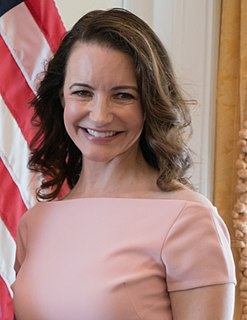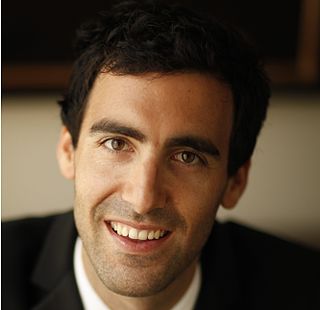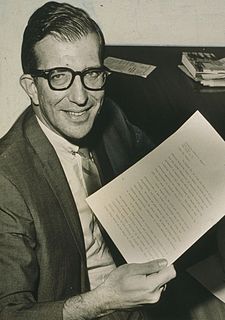A Quote by Cathy O'Neil
Especially from my experience as a quant in a hedge fund - I naively went in there thinking that I would be making the market more efficient and then was like, oh my God, I'm part of this terrible system that is blowing up the world's economy, and I don't want to be a part of that.
Related Quotes
I think there are probably too many hedge fund managers in the world, as well as active fund managers. The hedge fund industry is very efficient. We see a lot of hedge funds open and a lot close. It's very binary. You either succeed or fail in the hedge fund world. If you succeed, the amount the managers make it beyond most people's wildest dreams of wealth.
When a hedge-fund guy gets lucky because the market goes up, and he is going to make $200m, and you know $200 million, and he is going to pay almost no tax. I don't think that is a good thing for the country, and they are all supporting Jeb Bush and Hillary Clinton, all the hedge-fund guys. I don't want their support, because I'm totally self-funding my campaign.
I think capitalism will not disappear, but it's going to increasingly not be the exclusive arbiter of economic life. It's going to have to find value in interacting with the sharing economy on many levels. And this hybrid system that's already emerging among millennials is going to be a mature system where, by midcentury, part of the day will be in the capitalist market, part of the day in the sharing economy, depending on your marginal costs.
The worst part is that if you become part of a major - all these independent labels become farm teams for your corporate parent. Basically, you do all the work for years, blowing up an artist - you discover them, blow them up, you build their fan base. And then that artist is like, "Okay, now I'm here. Now I want more. I want to be bigger." And you're either going to be able to accommodate them, you're going to be able to figure out how to take that step with them, or you're going to lose them.
The underlying strategy of the Fed is to tell people, "Do you want your money to lose value in the bank, or do you want to put it in the stock market?" They're trying to push money into the stock market, into hedge funds, to temporarily bid up prices. Then, all of a sudden, the Fed can raise interest rates, let the stock market prices collapse and the people will lose even more in the stock market than they would have by the negative interest rates in the bank. So it's a pro-Wall Street financial engineering gimmick.
It's time to admit that public education operates like a planned economy, a bureaucratic system in which everybody's role is spelled out in advance and there are few incentives for innovation and productivity. It's no surprise that our school system doesn't improve: It more resembles the communist economy than our own market economy.
I think there's a part of us that would like to use the fact that we're married, but you don't want the idea that we're married to overshadow the project itself.We're just looking for something that's so specific and good that it becomes a part of the story of why we did it rather than when we go to do press it's, 'Oh, my God, you're married and that's the only thing we want to talk about.' If we can merge both, that could be great.
I want each season to feel new and special. I don't want it to feel, "Oh, more of this." That's something that's easy to do in the first three seasons, and harder to do as you go. I'd rather err on the side of blowing up everything and being like, "Why did you do that? There was more story to tell there," and moving the family to Mexico like on Weeds, instead of people going, "Oh, we've seen this already. We're tired of this."
































